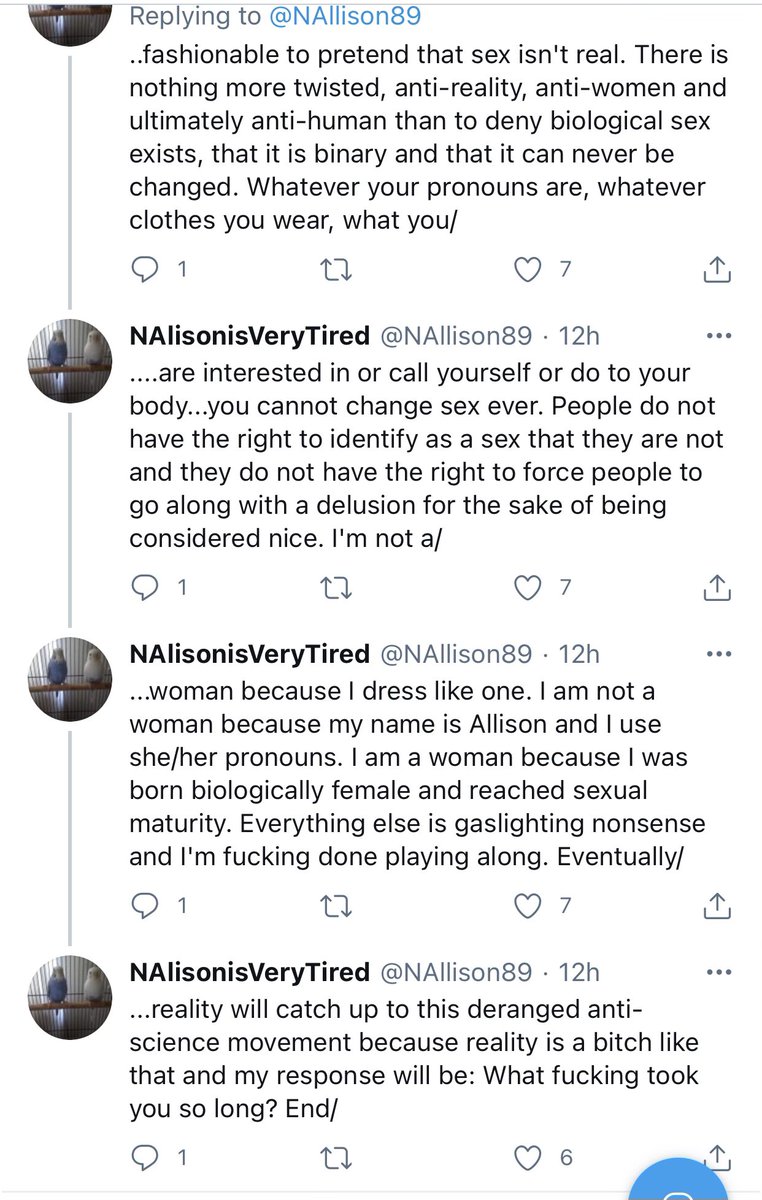um... thanks? i guess? do not really know how to respond to this. except to point out, once more, that people knew what women were before we knew what gametes were. history is not an optional extra. https://twitter.com/aletheia327/status/1355009789911298049
I want to be v clear what I mean, since ppl in the comments are saying reasonable, but different, things about gender. My point is: our understanding of *what sex is* changes over time, as we learn more about gametes, chromosomes, hormones.
It is tempting to believe that scientific knowledge simply shades in a timeless and always-known truth. But it isn’t so. Our understanding of sex difference is profoundly culturally determined, historically *and* at present.
All we mean by “culturally determined” is that scientific knowledge is a kind of knowledge produced under particular historical conditions. It doesn’t mean that sex isn’t “real” (nor does it mean it “is real”), or that reproduction is a coincidence.
When sex differences are translated into, for example, a marriage system, or a set of oppressive laws, or a cultural practice of femicide, we refer to that translation as “gender.” We need the term “gender” to understand what happens in the name of sexual difference.
The terfs seem to think “gender” means something fictional or trivial. No. It is the word feminists use to describe oppression as such—including the oppression of women by means of sex, reproductive capacity, etc. Gender isn’t “sex lite.” The opposite. It is sex + meaning.
Likewise, “identity” isn’t a trivial issue at all (tho terfs reduce it to matters like make-up). “Identity” is the word we use to describe the fixity of particular subjects in the law, and in matrices of cultural recognition.
In other words, what this terf says about identity is almost right. She is not a woman bc her name is Allison. She is a woman bc she is identified as a woman in taxonomies of legal, political, and cultural power. She is *identified* as a woman.
Trans people obviously have a strange role in all of this. We say a few things simultaneously: (1) we want to be identified differently; (2) we think we are *already* identified in conflicting ways; (3) we feel profound and necessary attachments to certain identities.
Terfs, hearing these claims, focus solely on the third, and pretend “self-id” means “select your own gender.” Rather than “describe your own position”—after all, Allison “self-IDs” as a woman, and that’s the only reason any of us know she is one.
For myself, I claim not only that I feel a profound attachment to being a woman, but that in certain important and observable ways, *I was ID-ed as a woman before transition.” Nothing to do with make-up. I’ve written about this lots, I won’t do it again here.
You might want to disagree with me about those experiences and interpretations. But such a disagreement would be about gender, not sex. Nothing about the claim I am making is intrinsically impossible.
GENDER and IDENTITY are useful concepts for feminists bc they help us avoid a trap that terfs seem to run headlong towards: the patriarchal notion that women’s oppression is inevitable and ubiquitous. It isn’t either.
Lastly, I’ve seen people laughing a lot about the phrase “born in the wrong body” recently. I don’t know why. Imagine thinking one had been born in the right body! I love my body—as freaky, transsexual, “wounded” (according to terfs) as it may be.

 Read on Twitter
Read on Twitter


